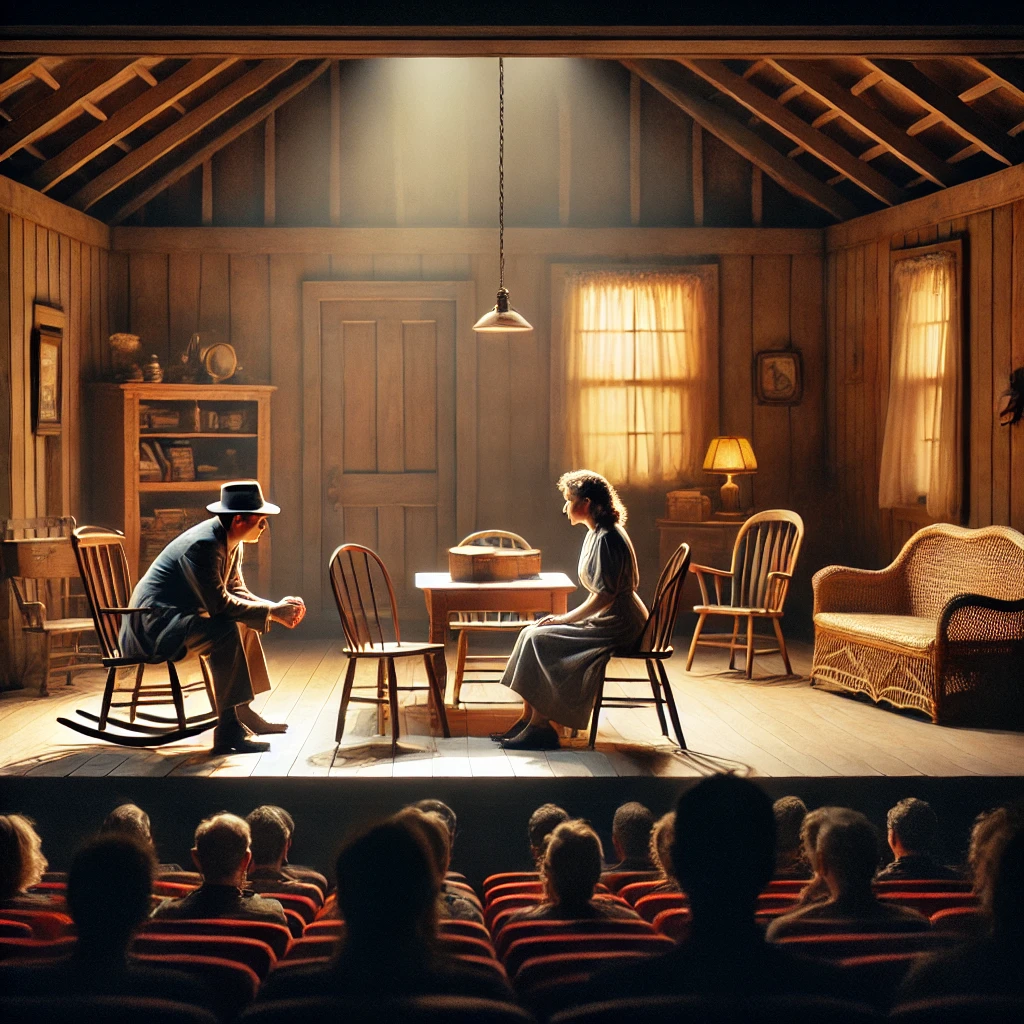American Literature: Fiction and Drama
American literature reflects the diverse experiences and voices that have shaped the country. Fiction and drama stand as two central pillars, offering stories that entertain, challenge, and inspire. From early colonial tales to contemporary masterpieces, these genres illuminate the human condition, social changes, and the American dream.
The Origins of American Fiction
Early Colonial Narratives
- Key Figures: Mary Rowlandson, Cotton Mather.
- Emphasis on survival, faith, and encounters with the Native Americans.
Rise of the Novel
- Emergence of early American novels in the late 18th century.
- Works like Charles Brockden Brown’s Wieland and Susanna Rowson’s Charlotte Temple.
19th-Century Fiction: The Foundations of American Identity
The Romantic Movement
- Influence of European Romanticism.
- Notable Authors: Washington Irving (The Legend of Sleepy Hollow), James Fenimore Cooper (The Last of the Mohicans).
Transcendentalist Fiction
- Philosophical focus on nature and individuality.
- Ralph Waldo Emerson’s ideas and Henry David Thoreau’s Walden.
The Gothic Tradition
- Edgar Allan Poe’s psychological and horror stories like The Tell-Tale Heart and The Fall of the House of Usher.
Realism and Regionalism
- Post-Civil War America brought a focus on realism and regional details.
- Key Figures: Mark Twain (The Adventures of Huckleberry Finn), Kate Chopin (The Awakening), Willa Cather (My Ántonia).
American Drama in the 19th Century
Early Theatrical Beginnings
- Influence of European drama.
- Popular plays like Rip Van Winkle and melodramas appealing to the masses.
Eugene O’Neill: The Dawn of Modern American Drama
- Introduction of psychological depth and realism in works like Long Day’s Journey into Night and The Iceman Cometh.
20th-Century Fiction: The American Dream Explored
The Jazz Age and the Roaring Twenties
- F. Scott Fitzgerald’s The Great Gatsby as the quintessential novel of the 1920s.
- Ernest Hemingway’s minimalism in The Sun Also Rises.
The Harlem Renaissance
- A burst of African-American voices in literature.
- Langston Hughes (Not Without Laughter), Zora Neale Hurston (Their Eyes Were Watching God).
The Southern Gothic Tradition
- Themes of decay, grotesque characters, and moral dilemmas.
- William Faulkner (The Sound and the Fury), Flannery O’Connor (A Good Man is Hard to Find).
Postmodernism and Experimentation
- Breaking narrative conventions and exploring metafiction.
- Thomas Pynchon (Gravity’s Rainbow), Kurt Vonnegut (Slaughterhouse-Five).
20th-Century Drama: A Golden Age
Arthur Miller and Tennessee Williams
- Miller’s Death of a Salesman: The tragedy of the common man.
- Williams’ A Streetcar Named Desire: Desire, reality, and mental instability.
The Theater of the Absurd
- Edward Albee’s Who’s Afraid of Virginia Woolf?: Interpersonal conflict and existential dread.
African-American Playwrights
- Lorraine Hansberry’s A Raisin in the Sun: The fight for dignity and identity.
- August Wilson’s Pittsburgh Cycle: Chronicling African-American life over decades.
Contemporary Fiction and Drama
Fiction in the 21st Century
- Emphasis on diversity and global perspectives.
- Authors like Toni Morrison (Beloved), Jhumpa Lahiri (The Namesake), and Colson Whitehead (The Underground Railroad).
Modern American Drama
- Lin-Manuel Miranda’s Hamilton: A blend of history and hip-hop.
- Pulitzer winners like Suzan-Lori Parks (Topdog/Underdog) and Quiara Alegría Hudes (Water by the Spoonful).
Themes in American Fiction and Drama
- Identity and Race: Explored in works like To Kill a Mockingbird and Fences.
- The American Dream: Success and failure in The Great Gatsby and Death of a Salesman.
- Freedom and Oppression: A central concern in Beloved and The Crucible.
The Impact of Fiction and Drama on Culture
- Literature as a mirror of societal changes, from the Civil Rights Movement to contemporary issues like immigration and technology.
- The continuing influence of plays and novels on modern cinema and television.
American literature, through its fiction and drama, offers a rich tapestry of voices and visions. From the humble beginnings of colonial tales to the complexities of modern works, these genres encapsulate the evolving American experience. They remind readers of the power of storytelling to connect, challenge, and inspire across generations.

 CSP
CSP